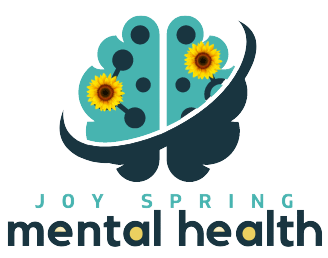Obsessive Compulsive Disorder Treatment Center in Jefferson ,North Carolina
Obsessive Compulsive Disorder in NC
It's not "just anxiety" and it definitely isn't "hand-washing."
Obsessive-compulsive disorder is a condition in the brain where ineffective communication between different parts of the brain leads to distressing false alarm signals and intrusive thoughts. In an effort to reduce the anxiety that these signals cause, you may engage in behaviors (actions or avoidance) that waste your time and energy.
OCD is exhausting. It is embarrassing to know that your compulsions are ineffective and unnecessary. Together, we will move beyond embarrassment and shame and help you be well.
OCD Is consuming, even knowing the thoughts and compulsions do not serve you well, it is very difficult to manage without support.
OCD often exacerbates during times of transition.
OCD is treatable! You don’t have to be pregnant or breastfeeding to receive my services but if you are, please keep reading…
Perinatal and Postpartum Obsessive Compulsive Disorder-Telehealth Treatment in North Carolina and Virginia

Postpartum OCD-the Maternal Mental Health TIME THIEF
Let’s be clear- obsessive compulsive disorder (OCD) can occur during any phase of the reproductive years. However, it tends to exacerbate during the postpartum period and if left untreated, can continue throughout the lifetime of the mom.
It is not just about germs and symmetry! Obsessions refer to any unwanted, disturbing, intrusive thought that causes distress and anxiety. While germs and symmetry can be obsessions, so can fears of harm, fears of harming someone else (especially scary if it is an intrusive thought that you could harm your baby), fears of making a mistake, sinning, or forgetting something or intrusive thoughts or images about sex or violence. You may have more than one obsession or obsessions that change over time.
It’s not just cleaning! Compulsions refer to the actions moms take in response to their intrusive thoughts in an attempt to relieve the anxiety these thoughts cause. While it may be cleaning, it can also be seeking reassurance, double-checking (multiple times), avoidance behaviors, counting, touching, straightening, or mental compulsions, just to name a few.
The thoughts and behaviors can change over time and they are not always easy to recognize. For example, the thought that something bad could happen to your baby with the compulsion to keep them close and frequently check on them is common to new moms. So how do you know when it is “just being a mom” (after all, 90% of new parents will experience unwanted and disturbing intrusive thoughts) or something more”?
Perinatal obsessive-compulsive disorder takes up a lot of time between experiencing intrusive thoughts and engaging in unnecessary and ineffective compulsions. Not only that, the moms who experience intrusive thoughts and compulsions during postpartum OCD know that their compulsions are over-the-top and unreasonable and they are ashamed and embarrassed by their thoughts and actions so they spend even more time trying to make sure that the people around them don’t realize what is happening. Many moms suffer in silence and shame. “Ain’t no mom got time for that.” Untreated, perinatal OCD can lead to depression.
Fortunately, there are safe (for mom and baby) and effective treatment options including medications and therapy that can be used before, during, and after pregnancy and the postpartum periods. Joy Spring Maternal Mental Health is pleased to be able to offer these services to clients in North Carolina and Virginia through a telehealth platform.

